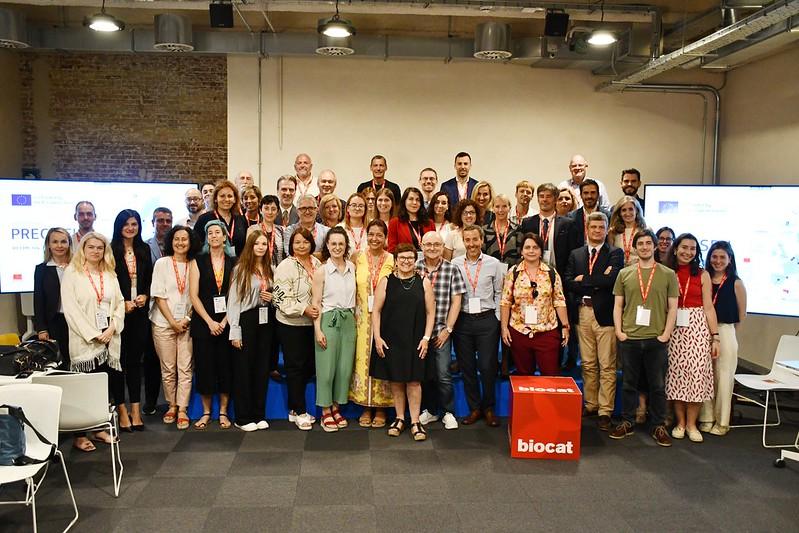The initiative has 25 participating partners, and Catalonia stands out as the region with the most participants, with Biocat as the coordinator, in addition to the Department of Health, ACCIÓ, the Barcelona Supercomputing Center – Centro Nacional de Supercomputación and AstraZeneca.
Barcelona hosted the launch of PRECISEU, the huge personalized medicine project in the European Commission’s Horizon Europe program, which seeks to create an interregional ecosystem in the field of personalized medicine and advanced therapies.
The initiative has 25 participating members from 12 European regions from 10 member states, as well as Ukraine, a country associated with the Horizon Europe program. Catalonia stands out as the region with the most partners, with Biocat as the coordinator, in addition to the Department of Health, ACCIÓ, the Barcelona Supercomputing Center – Centro Nacional de Supercomputación and AstraZeneca.
Allocated almost 23 million euros, this macro-project is one of the five winning projects of the competitive Regional Innovation Valleys (RIV) call for European innovation ecosystems, and the only one in this field.
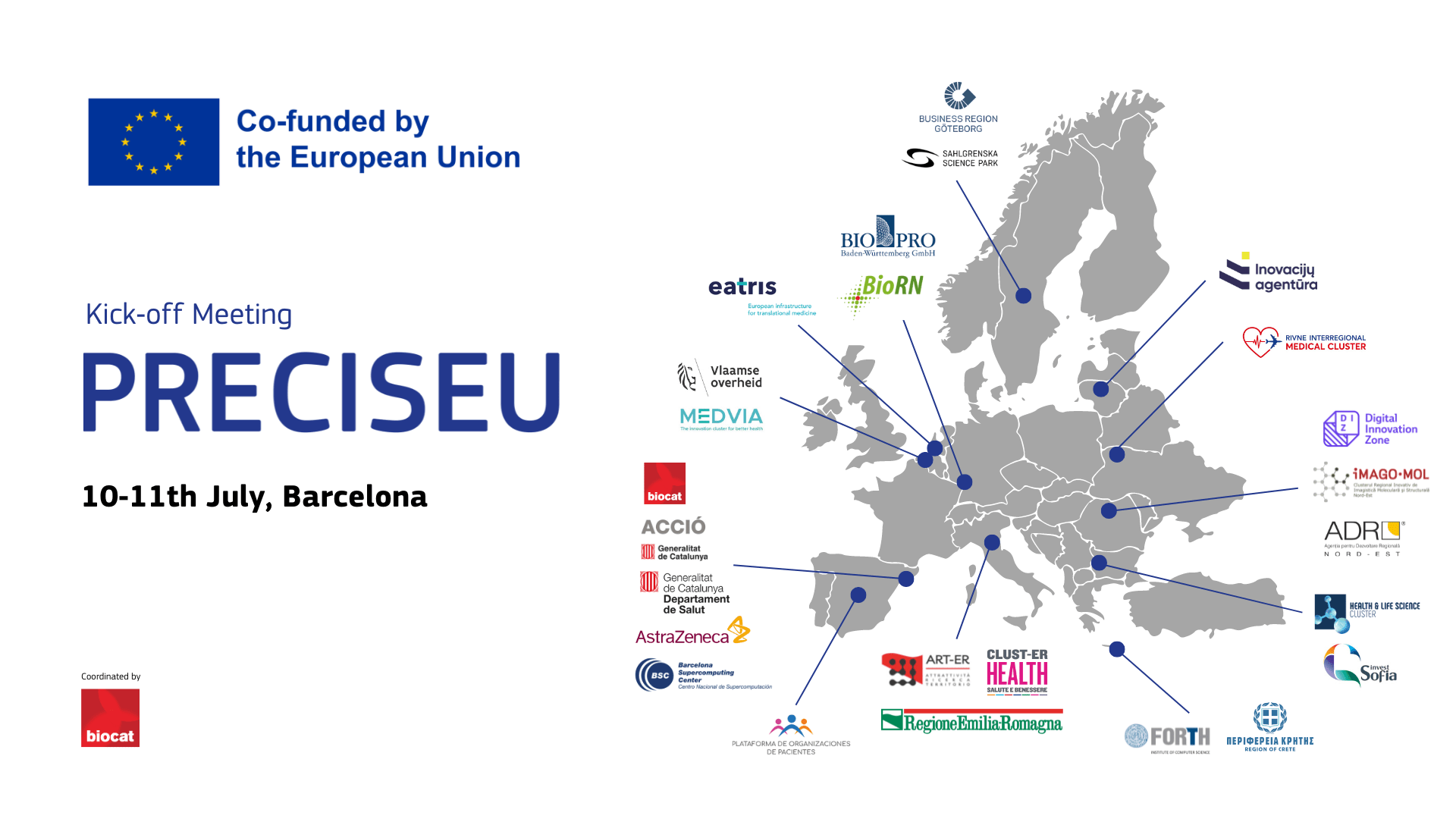
Over the course of three days, around 50 representatives of the 25 PRECISEU members finished defining and agreeing upon all the working activities of this initiative, which will last until 30 June 2029. The agenda of this internal meeting included the public launch, which was held at the Palau de la Generalitat and brought together authorities, more than 100 professionals in the sector and representatives of the PRECISEU partners, signaling the start of one of the most ambitious European projects in this field.
The president of the Government of Catalonia, Pere Aragonès, along with the Health Minister, Manel Balcells, attended the event along with other prominent authorities. In the words of the acting Head of the Executive, projects like this one “are the best example of why investing in science is the best way to improve people’s lives,” given that “science is first and foremost a tool to serve people.”
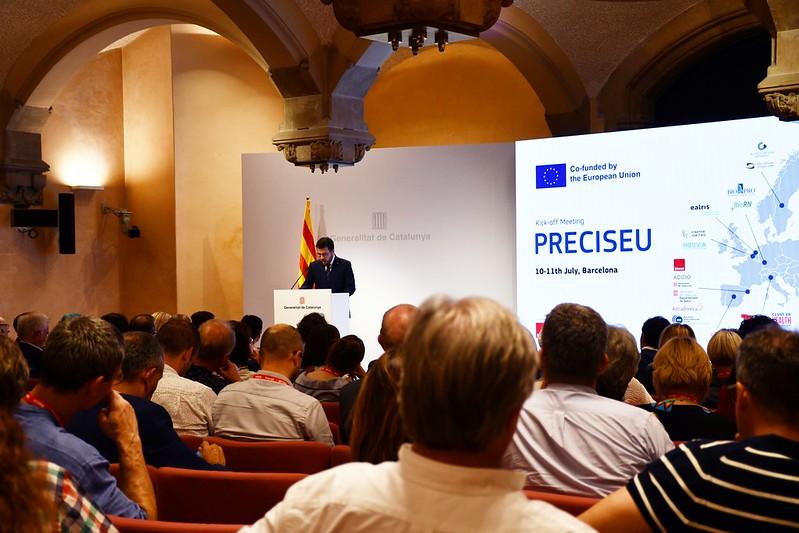
Pere Aragonès celebrated the fact that Catalonia is leading a globally cutting-edge project “that will contribute to decisively speeding up the implementation of personalized medicine around Europe.” Furthermore, he believes that the future of medicine lies in “adapting treatments to each person, to each of us according to our needs,” he added.
The president closed his speech by thanking everyone, especially Biocat, which has made it possible “for Catalonia to be at the forefront of research and life science and healthcare, and for making it possible for us to lead such an important European project as PRECISEU.” Then, the Minister of Health, Manel Balcells, added that PRECISEU “will position Catalonia as one of the most representative healthcare innovation ecosystems in Europe.”
The representative of DG RTD, European Commission, Jekaterina Novikova, also spoke to congratulate the PRECISEU consortium for having been one of the five winning projects in the competitive RIV call of the European Commission’s European Innovation Ecosystems program, and the first to have signed the agreement with the European Commission to launch the project.
With its robust health innovation ecosystem, Catalonia is playing a key role in this project. The region leads the Spanish rankings in scientific publications on personalized medicine and advanced therapies, and it ranks high in Europe and internationally in its participation in clinical trials in this field. Catalonia has also received the most funding from the CERTERA call and is at the forefront of digitalizing its healthcare system in Europe.
Montse Daban, the project coordinator and director of Strategic Analysis and International Relations at Biocat, took the floor to explain how PRECISEU will work to ensure that personalized medicine reaches patients. “For the next five years, we’ll identify the organizations working in personalized medicine in the 12 European regions that are part of the PRECISEU program in order to make these treatments reach patients from a market perspective.”
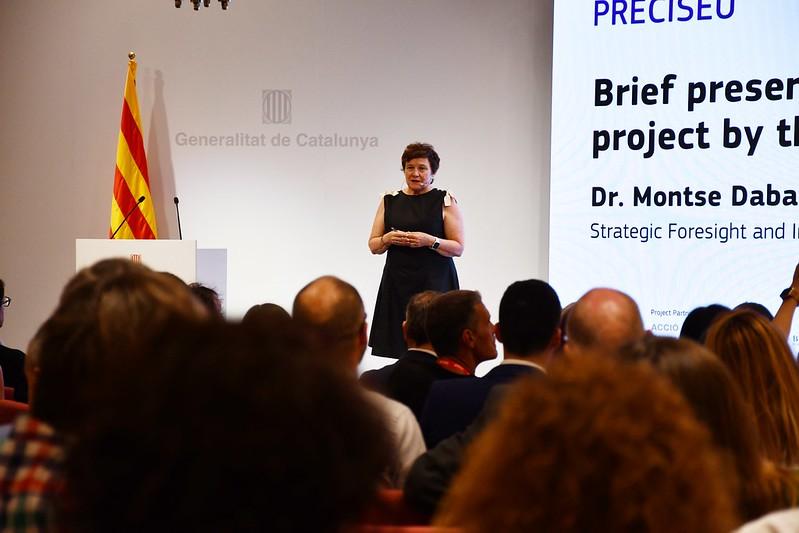
Once PRECISEU had officially been launched, two panel discussions were held. The first one, led by Javier Adrián, Head of European Projects Office at ACCIÓ, was on RIVs from the perspective of the regions participating in PRECISEU. The participants in this discussion were Jekaterina Kaliniene, Head of Biotech Lab at Innovation Agency Lithuania ; Angelica Laterza, Project Manager at RER; Ramon Maspons, director of Strategy and Health Innovation in the Department of Health; and Katerina Rousaki, Project Manager at PERIFEREIA.
Jaketerina Kaliniene hopes that personalized medicine will simply come to be called medicine five years from now. Likewise, Angelica Laterza and Katerina Rousaki want the private sector to participate actively in the project in order to help this innovation reach the market. On this point, Ramon Maspons highlighted Catalonia’s extensive experience in public-private partnerships and explained how the region can contribute its experience with PASS and the Advanced Therapies Network of Catalonia to the PRECISEU project.
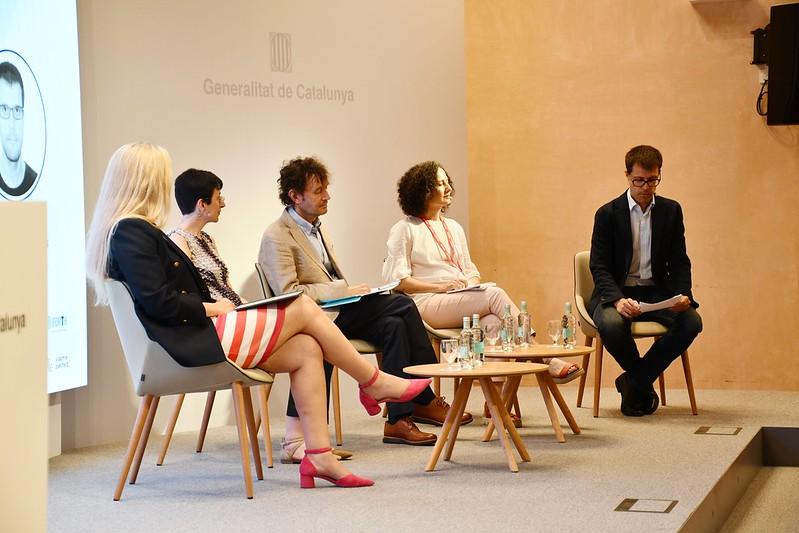
The second session was entitled Personalized Medicine and included representatives of the EP PerMed and PRECISEU. It was moderated by Núria Radó, Senior Project Leader at Biocat. The participants were Toni Andreu, scientific director at EATRIS; Alba Jené, Life Sciences coordinator at BSC; Josep Samitier, director of the IBEC; and Gianni d’Errico, EP PerMed.
The participants shared the personalized medicine experiences of the organizations they represent, as well as the main challenges they are facing. Toni Andreu stressed the transformation entailed in implementing these treatments not only for the research community and companies but also for all healthcare systems and society as a whole. Building on that, Alba Jené pointed out the social and political barriers that have to be overcome so that all the stakeholders involved can work together in this field. Josep Samitier identified three main challenges: the development of biomarkers, the creation of biomodels that enable patient data to be collected, and proving that these therapies can be sustainable for the healthcare system. Gianni d’Errico underscored the need to improve the clinical validation of these therapies, which would boost the regions’ competitiveness.
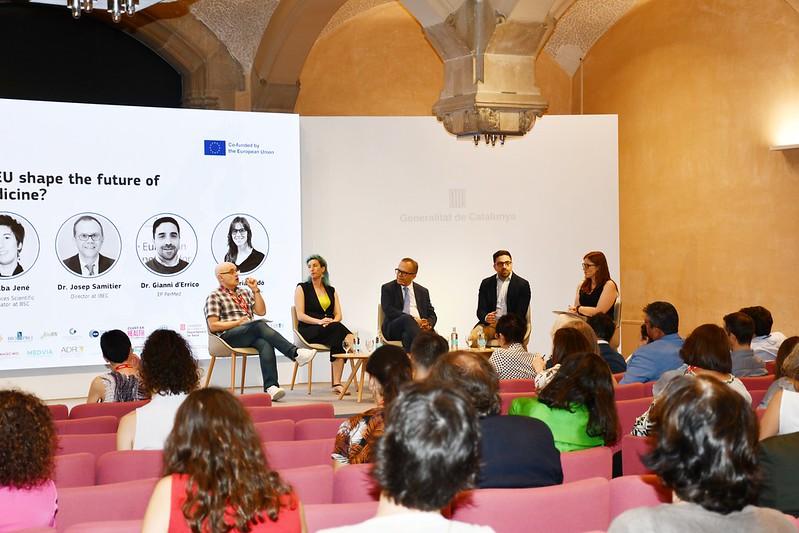
The PRECISEU partners’ stay in Barcelona concluded with a visit to the BSC, which is also participating in the project. The representatives were able to see the Life Sciences facilities and learn how the department works.


